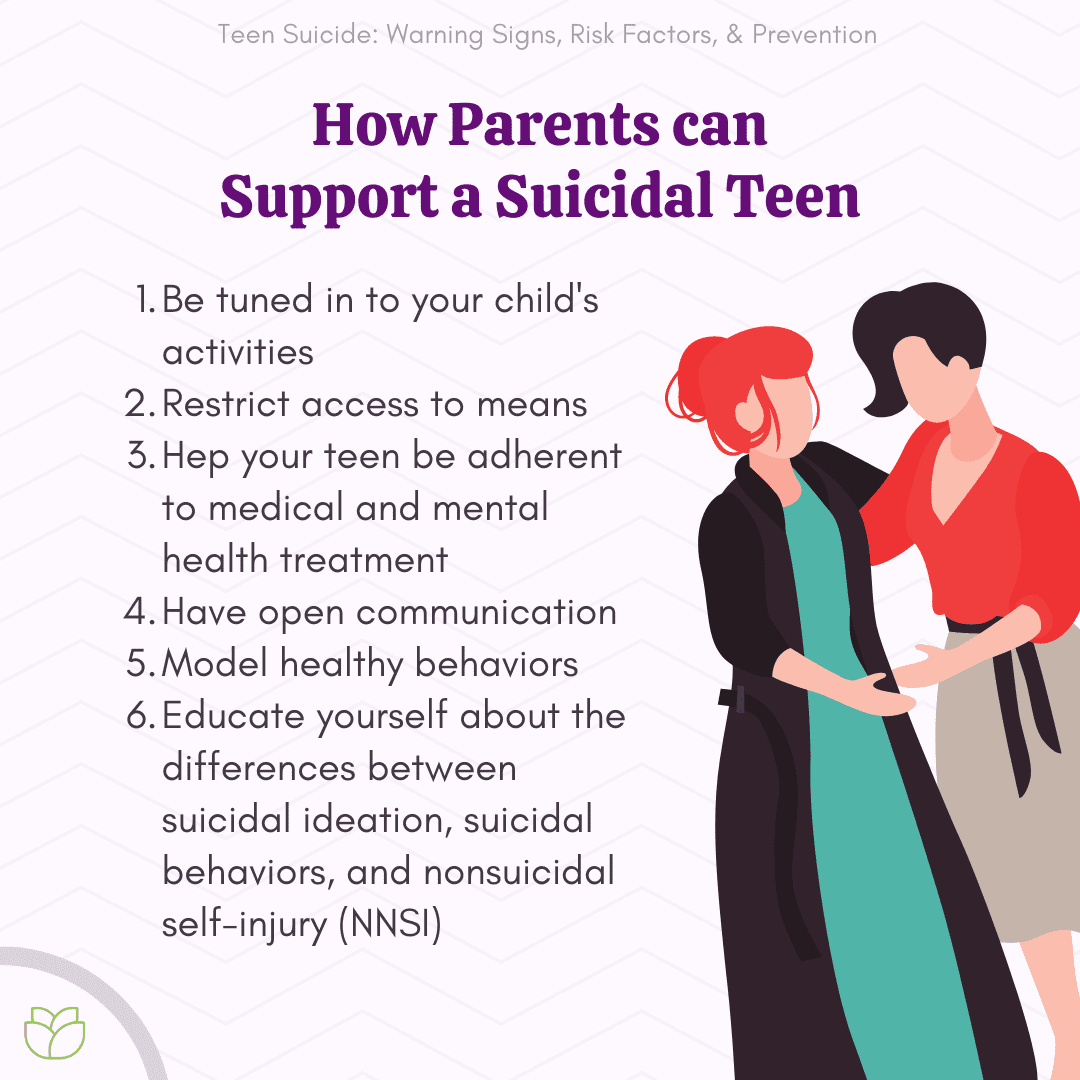
Warning Signs of Teen Suicide
Whether your teen is having trouble in school, dealing with a breakup or struggling with peer pressure, it’s important to recognize the warning signs of suicide.
Teens who are thinking about suicide often give their loved ones and trusted friends signs they are struggling. As a parent, teacher or friend, it’s your job to pick up on these warning signs and get help.
1. Changes in personality or behavior
If your teen or young adult suddenly shows impulsive, unusual behavior, this may be indicative of a mental health problem. For example, it could be a sign of depression or a bipolar disorder.
In addition, teens who are bullied, have access to lethal means like guns or pills, or who experience a traumatic loss or have unresolved feelings of worthlessness may be more likely to attempt suicide.
2. Loss of interest in things they used to enjoy
A teen who is suffering from depression will likely experience the loss of interest in things they used to enjoy. This symptom is known as anhedonia.
Mental health professionals are interested in this symptom because it can help them diagnose adolescents who may have depression.
To study anhedonia, mental health researchers conducted one-on-one interviews with teens. They explored the teen’s desire/not wanting to do certain activities, their enjoyment of those activities, and the teen’s feelings about connecting with others and their larger world.
3. Changes in eating or sleeping habits
If your teen is unable to sleep and eating habits have changed, these are strong signs that something may be wrong. Changes in food can be caused by stress or other mental health issues, so it’s important to talk to your teen about their eating and sleeping habits as soon as possible.
Threats of suicide are a cry for help, and should never be ignored or dismissed as “just a bid for attention.” Always take these statements seriously and have your teen evaluated by their healthcare provider.
4. Changes in mood or behavior
If your teen suddenly has a change in their mood, it could be a sign of depression or a possible suicide attempt. Changing feelings of sadness or hopelessness might lead to withdrawal from friends or activities that used to make them happy.
If you notice any changes in your teen’s behavior, contact them immediately for help. This can include a call to 988 Suicide and Crisis Lifeline or a text to 741741.
5. Changes in school performance
If a student is not doing well in school or performing worse than usual, talk to them about their problems and find out if they need help. Treatment can include medication, counseling or both.
Students with troubled lives and problems in their homes are at higher risk for suicidal thoughts. This is especially true for students who are struggling to come to terms with their sexual identity.
6. Changes in relationships
A change in a relationship is one of the most common indicators of teen suicide. It can be a sign that the person is going through a difficult time and needs support.
Parents may find it hard to deal with this change, but it is important to remember that the way a teen is feeling isn’t unusual or unhealthy. A good family atmosphere is also important, as is healthy communication.
7. Changes in sleeping or eating patterns
Changes in sleeping or eating patterns can be a sign that your child is thinking about suicide. They may go to bed at a different time or eat a lot of junk food before going to sleep.
Researchers have found that sleep disturbances and suicidal ideation are closely associated with one another. This relationship holds even when researchers control for depression, drug use and other factors that increase risk for suicide.
8. Changes in social or family relationships
Teens who have difficulty in their social or family relationships may be at increased risk for teen suicide. This includes teens who have trouble dealing with their parents splitting up or the death of a loved one.
Kids who have good problem-solving abilities and strong connections to their families or friends are less likely to think about suicide. They also have access to resources that can help them cope with stress or conflict.






